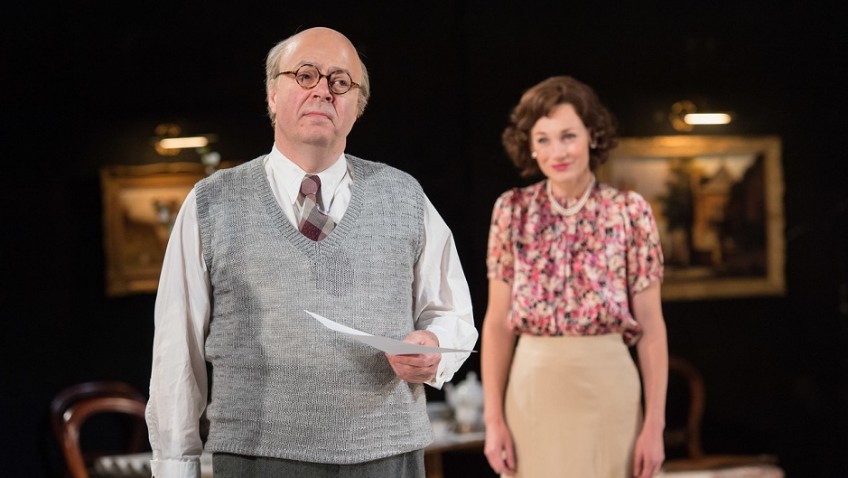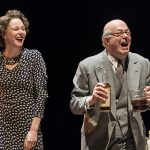Robert Tanitch reviews The Moderate Soprano at Hampstead Theatre, London NW3
I remember the first time I went to Glyndebourne. At the time the curtain should have gone up a man appeared in front of the curtain. He quickly allayed our fears. The singers were in fine voice but the train from London, bringing many members of the audience, had been delayed. They were on their way and would be with us in ten minutes.
He told us not to worry. The interval would not be shortened. There would still be the same amount of time to eat and drink champagne. The sigh of relief was audible and the applause was genuine.
David Hare’s new play, directed by Jeremy Herrin, is about Glyndebourne and its founder, John Christie, who wanted to make English music better. “I want,” he said, “to give my country a model of perfection. My country needs cheering up. I’m the one to do it.”
Christie, ambitious, passionate, eccentric, rich, had the dream. His beautiful wife, made it practical.
The building, which opened in 1934, was totally wrong, too small and too cramped to cope with a large orchestra and scenery. But Glyndebourne still managed to set standards, integrating acting and music, which had never been seen in Britain before.
The paradox was that this most British of institutions was created by Germans: conductor Dr Fritz Busch, director Professor Carl Ebert and impresario Rudolf Bing.
Christie ran it financially. They ran it artistically. He wanted to stage Wagner and Parsifal in particular. They staged Mozart. “Is Mozart any good?” Christie asked. “Mozart may be great but is he any good?”
Christie believed in democracy but only if he were in charge. He also expected the audience to put in some effort and pay up. “Art cannot be a sideshow… If it takes a whole day and wipes out their savings so much the better.”
 Roger Allam is in his element as Christie. Nancy Carroll is his wife, the moderate soprano; moderate meaning gentle of voice, not second-rate.
Roger Allam is in his element as Christie. Nancy Carroll is his wife, the moderate soprano; moderate meaning gentle of voice, not second-rate.
George Taylor is Bing: “I love hysteria. Nothing first-rate in the arts was ever achieved without it.”
Paul Jesson is Fritz Busch, who gives a vivid account of an artist’s life in Nazi Germany when he did not toe the line. The audience booed him when he appeared in the pit of his opera house and the orchestra, wearing swastikas in their lapels, refused to play. He left for England with his family and nothing but a few belongings.
To learn more about Robert Tanitch and his reviews, click here to go to his website




